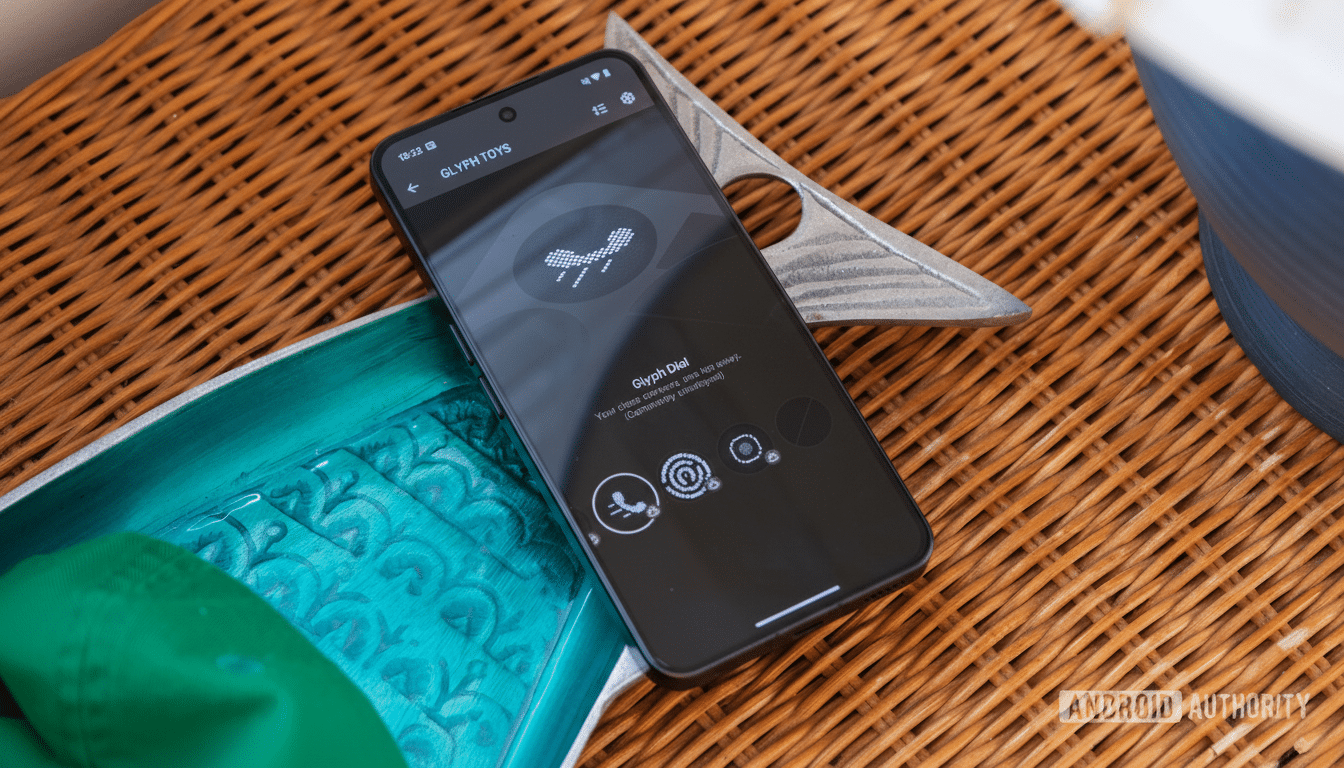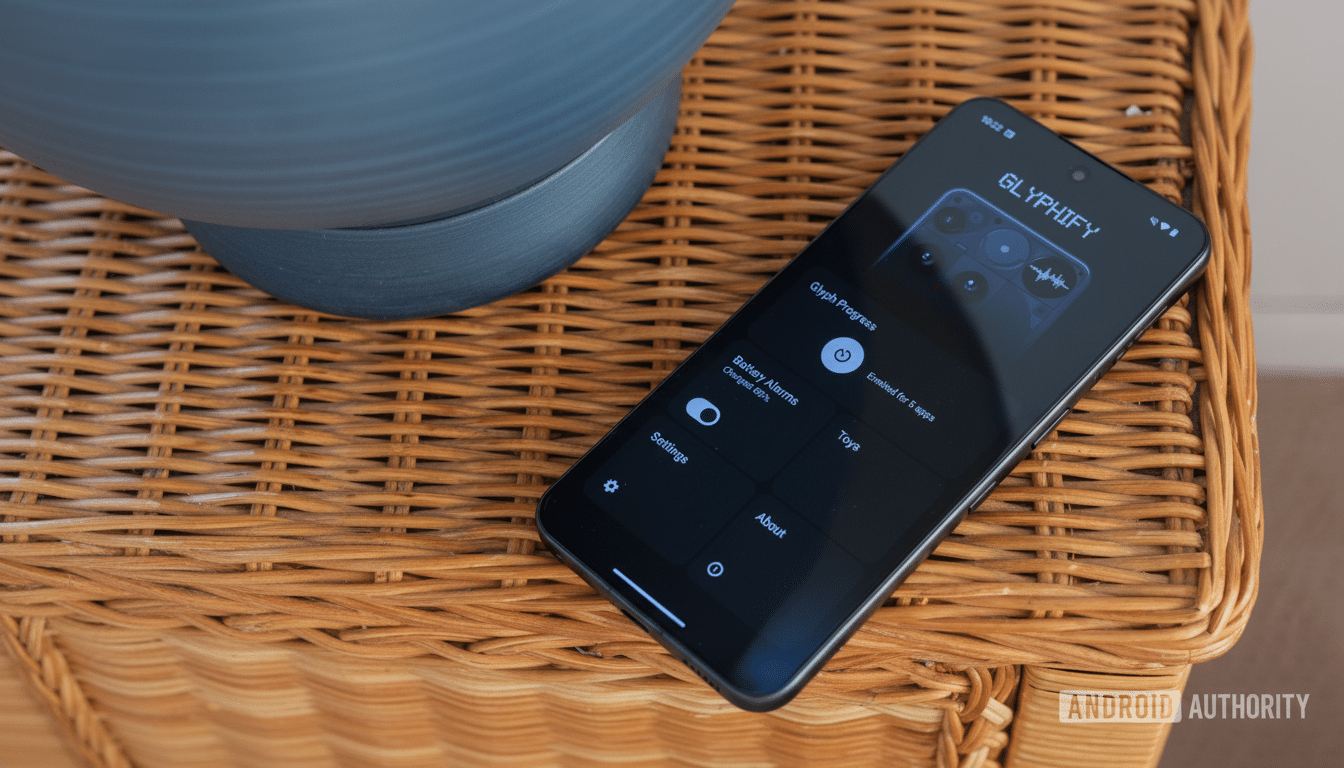The Nothing Glyph system on its phones has always struck the balance between delight and decoration. With Glyphify, it has now left that flimsy line and is persecuting into “useful. For such a trivial app that costs next to nothing, this one adds some purpose to the Nothing flagship’s circular Glyph Matrix and, on older models, the strip-based interface it was born with.
How the Glyph Matrix is Altered by Glyphify
The joinder of the poor man’s linear LED strip with a circular matrix would seem to promise richer interactions; but early software leant toward novelty.

Nothing’s own developer kit has cracked open this door for third parties, and the community has quickly come out testing. Glyphify is the first dividend I’ve really experienced from using an add-on: It turns the back of your phone into a time-sensitive surface you actually use multiple times throughout the day.
Nothing hasn’t shown what its hardware is capable of before—remember the Glyph Composer with Swedish House Mafia on older editions—but Glyphify brings that ambition to the everyday rather than party tricks. It’s a relatively small shift that pays off big.
Purpose-built speed dialing
The Glyph Dial as seen front-and-center atop the circular matrix is a row of ten slots — basically what would be buttons one through ten on a speed dial, conveniently mapped to the ring of LEDs. Tap the dedicated Glyph key to wake up the matrix, spin through your favorites, and seal the deal with a gesture — shake for one fav, lift-to-ear for another) cancelButton work. It’s impressively tactile, and most importantly, it gets the job done without having to unlock the phone or even look at its screen.
“In practice, the sequence comes in quickly and is reliable. Traveling with a bag? A couple taps on the back of your phone and you’re calling your favorite number. It’s the kind of muscle-memory shortcut that reduces friction — what user experience research published by groups like Nielsen Norman Group consistently ties to higher feature retention — and it suits the Nothing aesthetic without feeling gimmicky.
The app allows you to reorder favorites, prune the list a bit so that you can’t accidentally fire off your favorite nuker, and put the Dial relatively near the top of your Glyph “toys” so it’s never more than a tap or two away.
It’s the first Glyph interaction that feels seamlessly part of the phone rather than an unnecessary detour.
Creative Lashing for older Glyph phones
Meanwhile, creators of earlier Nothing devices with the original strip layout enjoy a different, but no less swanky, perk: audio-reactive lighting and simple custom ringtones featuring rhythmically synced patterns.
Any audio clip can be run through Glyphify’s beat mapping pipeline and its light segments, so you don’t get, as is often the case with the basic blink on notification approach from all-too-many other apps.

Look further and you’ll spot Glyphify Studio, which allows you to write ringtone melodies and assign specific lighting cues to portions – so a more granular replacement for Nothing’s Composer.
Based on Nothing’s developer documentation, each strip is addressable and Glyphify takes full advantage – you could create unique alerts for contacts, apps or calendar events that are not only auditory but visually readable at a glance.
Setup, permissions, and performance
Installation is straightforward. The app asks for only the things it should: access to contacts if you want a speed dial, permission to listen in on notifications if you fancy light cues based on apps and access to motion that lets you trigger gestures. No account to sign up for, no cloud dependencyCuts down latency and reduces privacy concerns.
In real-world use, animations pop up promptly and your gestures register reliably. In testing, the battery hit has been minimal, which is probably because the LEDs are efficient and the logic is running locally. Like any always-on interaction layer, overloading your active Glyph cycle can be cumbersome so stick to the essentials.
Where it still falls behind
The largest chasm is in feature parity across models. The Glyph Dial is specifically designed for the circular matrix and wouldn’t make sense on older hardware, while the Studio composer isn’t available in its current form on the matrix device – it’d require scrolling or arc-based patterns. There’s a hard cap of ten speed-dial contacts, which should be plenty for most people but feel a little tight for power users.
I would also love deeper system hooks—calendar and smart home controls come to mind—but those deep hooks require broader APIs or partnerships. Nothing’s SDK already supports addressing down to the level of a segment; broader official integrations would help further edge cases like Glyphify without kludgy workarounds.
Verdict: Practical polish for a flashy idea
For about the price of a cup of coffee, Glyphify makes the Glyph system something you will use intentionally rather than just admire.
On the matrix-equipped flagship, speed dialing is the killer feature; on previous models, audio-synced patterns and Studio composition fulfil customisation desires that fans have been requesting since Nothing’s first-generation strips.
If Nothing continues to support its developer ecosystem — and recent community activity indicates it will — expect more such utilities. For the moment, Glyphify is that rare third-party add-on that makes it all worth powering up the lights on the back of your phone, integrating form with function in a way only teased by Samsung’s initial vision.

